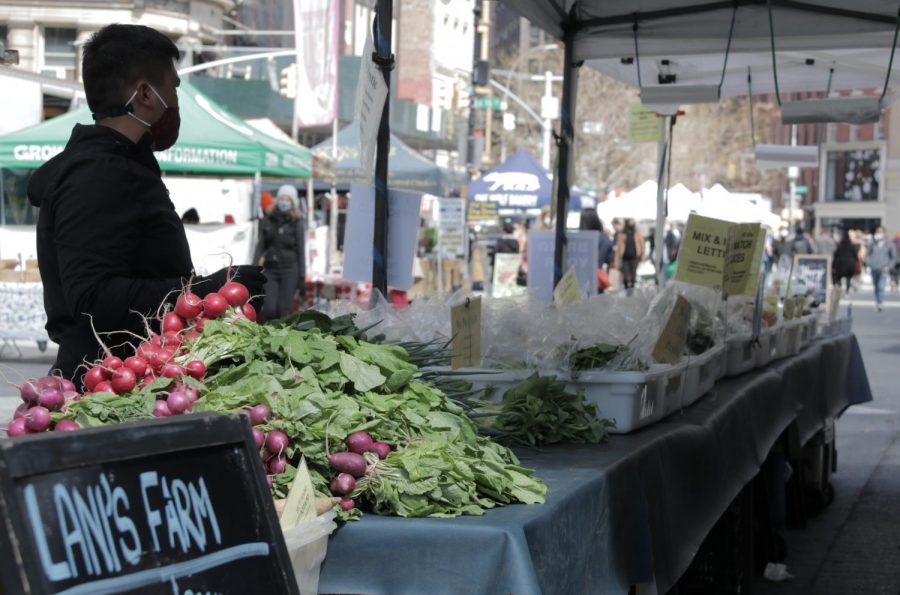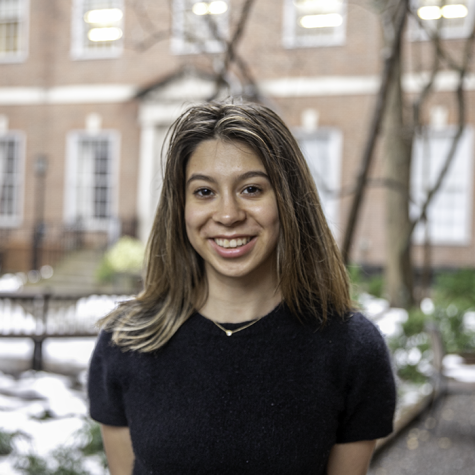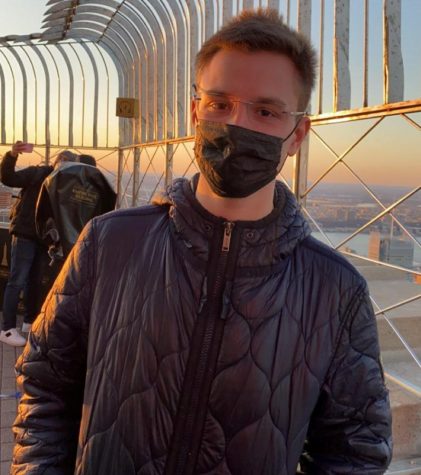It’s easy to become lost among the bustling crowds and rows of stands selling freshly baked pastries and seasonal produce that make up the vibrant Union Square Greenmarket. However, outside of the market, lies a reality that isn’t so picturesque — in fact, it’s rather grim.
Meet the small farmer: one of the most vital players in the food system. Despite their crucial role, the existential crises of COVID-19, climate change, and the dominance of agriculture corporations threaten the existence of many small farmers.
I spoke with John Gorzynski, the head farmer at Gorzynski Ornery Farm in Cochecton, N.Y., who sells fresh produce at the Union Square Greenmarket. Gorzynski gave me the inside scoop about the challenges he and other small farmers are facing.
“I started [farming] in 1976, you do the math,” Gorzynski said, laughing as he proceeded to tell me about his path to farming.
Even though Gorzynski’s grandparents farmed, his passion for agriculture began when he worked as a foreman supervisor in the forestry industry. Gorzynski was motivated to grow his own food after witnessing the usage of pesticides, or what he referred to as “an epidemic of cancer.”
“Stuff grew for me easily,” Gorzynski said. “When the garden turned into a profitable garden … the choice came: Do I want to go into a business that spends most of its money spraying pesticides that cause cancer and destroy the ecology, or do I want to farm?”
Within a few years, Gorzynski opened a farm and began cultivating crops without the usage of pesticides. Shortly after Gorzynski joined the Organic Farmers Association where he was eventually elected president. He spent years at the organization lobbying to pass the National Organic Program, which sets the standards for organically grown products.
The U.S. Department of Agriculture increased the number of pesticides that farmers could use. Upset with this action, Gorzynski changed the name of his farm from “organic” to “ornery.”
“I spent 19 years of my life trying to pass this law, which [the USDA] totally defiled the meaning of and have continued to degrade the meaning of organic in this country,” Gorzynski said.
The action taken by the USDA reflects a larger issue for small farmers like Gorzynski: the government’s subsidizing agriculture corporations.
“The government doesn’t do agriculture,” said Gorzynski. “They’re subsidizing big agribusinesses by way of keeping prices artificially low.”
Agriculture subsidies and other programs established during the 1930s under President Franklin D. Roosevelt’s administration were created with the intent of supporting small farmers who suffered during the Great Depression.
This changed during the 1970s when Earl Butz became the U.S. Agriculture Secretary. Butz told farmers to “get big or get out,” a concept that signaled the federal government’s support of commodity crops and agriculture corporations. This, in conjunction with technology and the emergence of globalization, enabled large agricultural corporations to sell crops at a cheaper price. Small farmers could not compete with these prices and, as a result, many went bankrupt.
“The price fixation [of agriculture]— the way that it’s structured is actually putting the small farmer with the inequities of pricing with bringing in products from the other side of the country,” said Gorzynski.
Between 2011 and 2018, more than 100,000 farms went out of business. Many of these small farmers grapple with large-scale debts that were exacerbated by a series of factors, particularly COVID-19.
Gorzynski said that his farm lost 95% of trade from restaurants during COVID-19. Other small farmers experienced a similar fate when restaurants were forced to close during the early stages of the pandemic.
To alleviate the financial burden that these farmers face, the Trump administration created the Coronavirus Food Assistance Program in April 2020. The program delivered funds to farmers in two rounds : the first round allotted 16 billion dollars, while the second round allotted 14 billion.
Yet, many small farmers were left out of the program, which contained structural issues that allowed farming corporations to receive a bigger piece of the pie. The top 10% of recipients garnered 60% of the program’s funding, while the bottom 10% received a mere 0.26%. The situation was worse for Black farmers. Tom Vilsack, the current Agriculture Secretary, recently revealed that Black farmers only received 0.1% of the money from the program.
While the Biden administration intends on solving these issues, Gorzynski believes that the government’s role in agriculture has hurt the small farmer more than it has helped.
“They can get the hell out of agriculture,” said Gorzynski.
Email Gabby Lozano at [email protected].

























































































































































